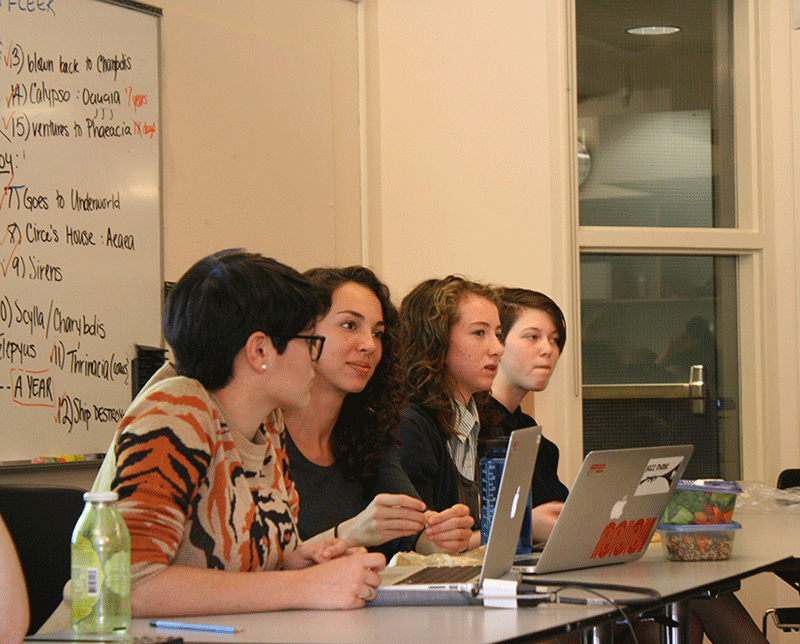Week planned by MultiCulti sheds light on multiculturalism at the Urban school
The Urban community values differences. The school creates safe spaces for each individual to be honest and open about their experiences. Throughout the year, Urban students and faculty hold open discussions relating to social issues including social class, race, and sexual orientation. However, the events between Friday Oct. 10 and Friday Oct. 17, organized by the MultiCulti group, was an especially enlightening time for the school community.
On the first Friday, Urban Students and Faculty shared their experiences in a Coming Out Panel, leading into the start of Multi-Culti week. The festival then continued with two inspiring speakers at last Tuesday’s All-School Meeting. Michael Gast (‘98) and Misha Olivas (‘94), both Urban alums, shared their journeys around culture and identity. The two speakers both mentioned their passions, the ways in which Urban shaped their personal growth, and the legacies they have left behind at Urban. Olivas said that she and a group of friends had been the original founders of the Students of Color affinity club, which is still prevalent at Urban today.
On Wednesday, a student-led informational presentation entitled, “The Words We Use” reminded Urban students to maintain awareness of their choice of words. In the presentation, students were encouraged to be sensitive to the historical context that may be associated with the words in their vocabularies and in the culture surrounding them. The words discussed ranged from less commonly known sexual orientations to racial slurs. Posters around the school define some of these terms, stressing the importance of recognizing their true meanings and appropriate uses. Though many may not witness it, offensive words are still directed at specific minority groups both in and outside the Urban community.
The “How to Ally” forum on Thursday explored the ways in which people can show support for peers who may experience oppression. Members of MultiCulti posed different scenarios to the room, which were then discussed. Each example contained someone of a minority group and an ally. In an open discussion, Urban students and faculty offered their opinions on these realistic scenarios and shared their own personal experiences with allies. Several questions were tossed around and wrestled with, including the overarching question of how to be an ally. Many students agreed that the role of an ally is determined by the needs of the person being oppressed. An ally does not necessarily have to publicly advocate for support of minorities. In fact, sometimes a gesture as simple as listening to a rant is most appreciated. In each scenario discussed, the ally was essentially the only person with the ability to make a change. Those born with into a minority group cannot change that aspect of their identity. Allies have the ability to use their privileges to provide support for others.
The festival week wrapped up with MultiCulti-style speed dating in the back yard. Abby Lim-Kimberg (’16) explained that attendees of the event spent five minutes speaking to a partner. During this time, they were prompted with questions both serious and fun. Lim-Kimberg believes that “many of the participants enjoyed the opportunity to have conversations with their friends, peers, classmates or teachers that they would not have started themselves.” The week was both eye-opening and unifying for the Urban Community. The MultiCulti team will now turn their attention to preparation for the Month of Understanding, during which a variety of activities and events will take place concerning multiculturalism.


